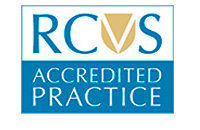24 hour contact: 01707 666297
Mobile Equine Diagnostic Facilities
You might be surprised to hear that we can do many diagnostic imaging imaging procedures at your yard or stables.
The ability to undertake mobile (or ambulatory) diagnostic imaging enables many more cases to be seen by the RVC Equine Practice team rather than requiring admission to hospital. We have a high standard of fully portable diagnostic equipment, including digital endoscopy, radiography and ultrasonography.

